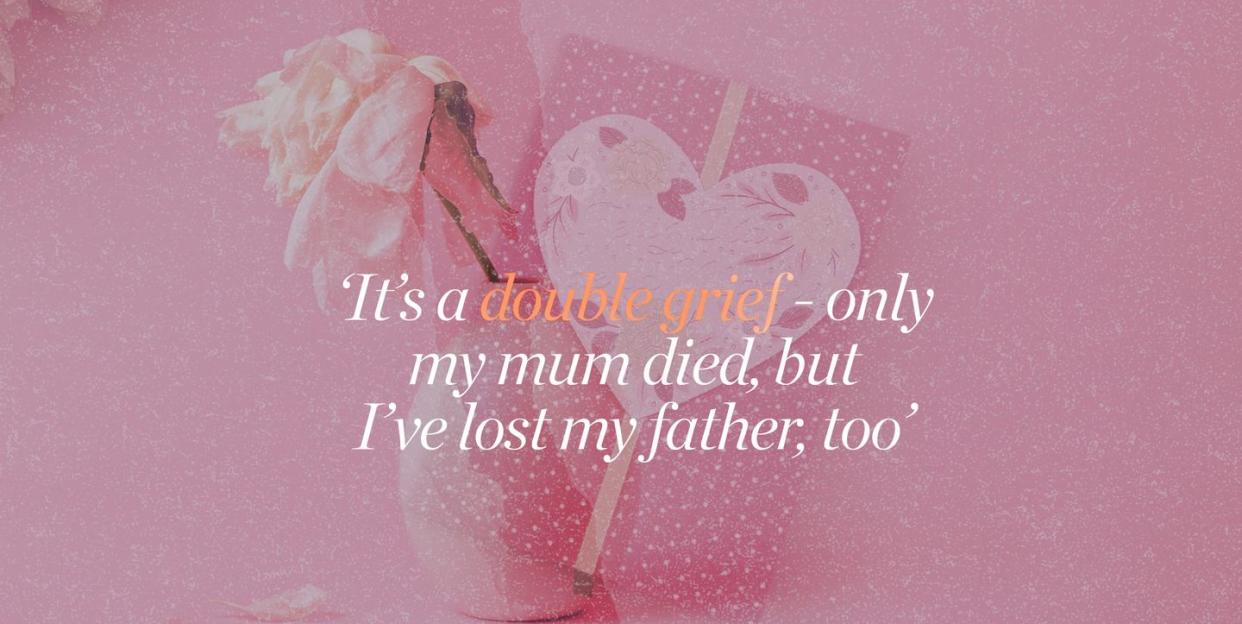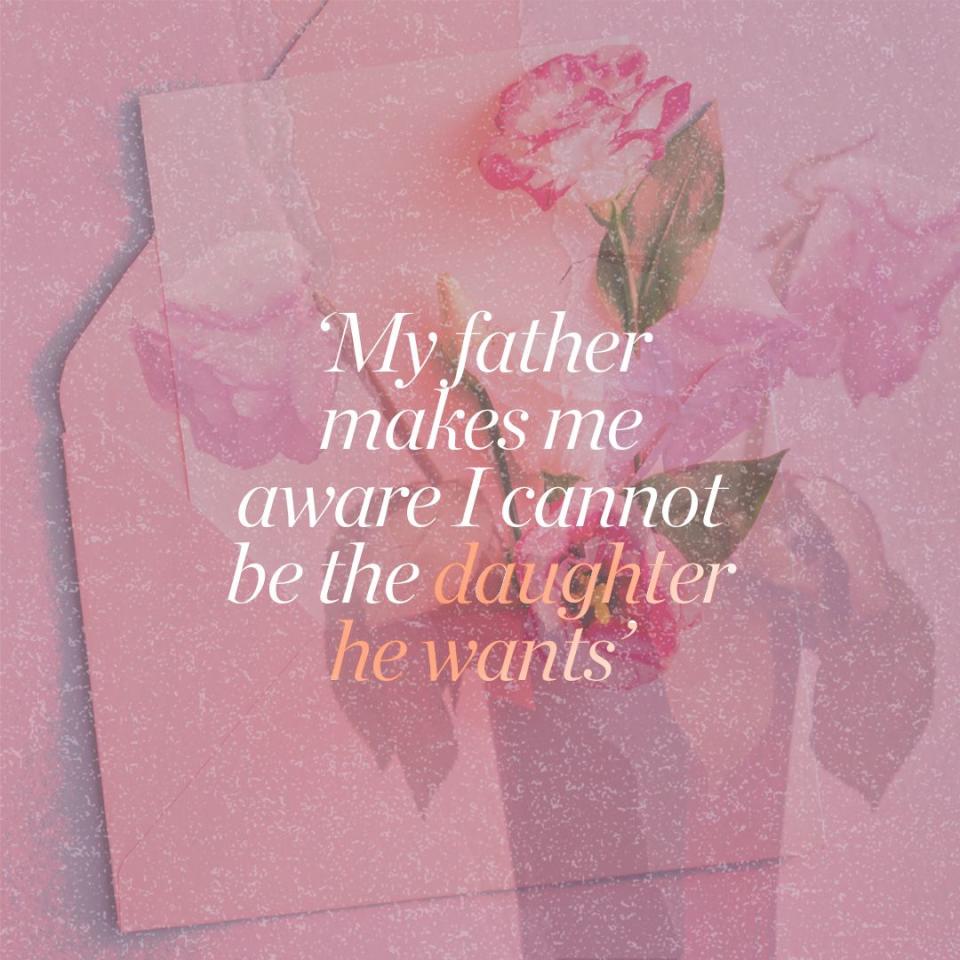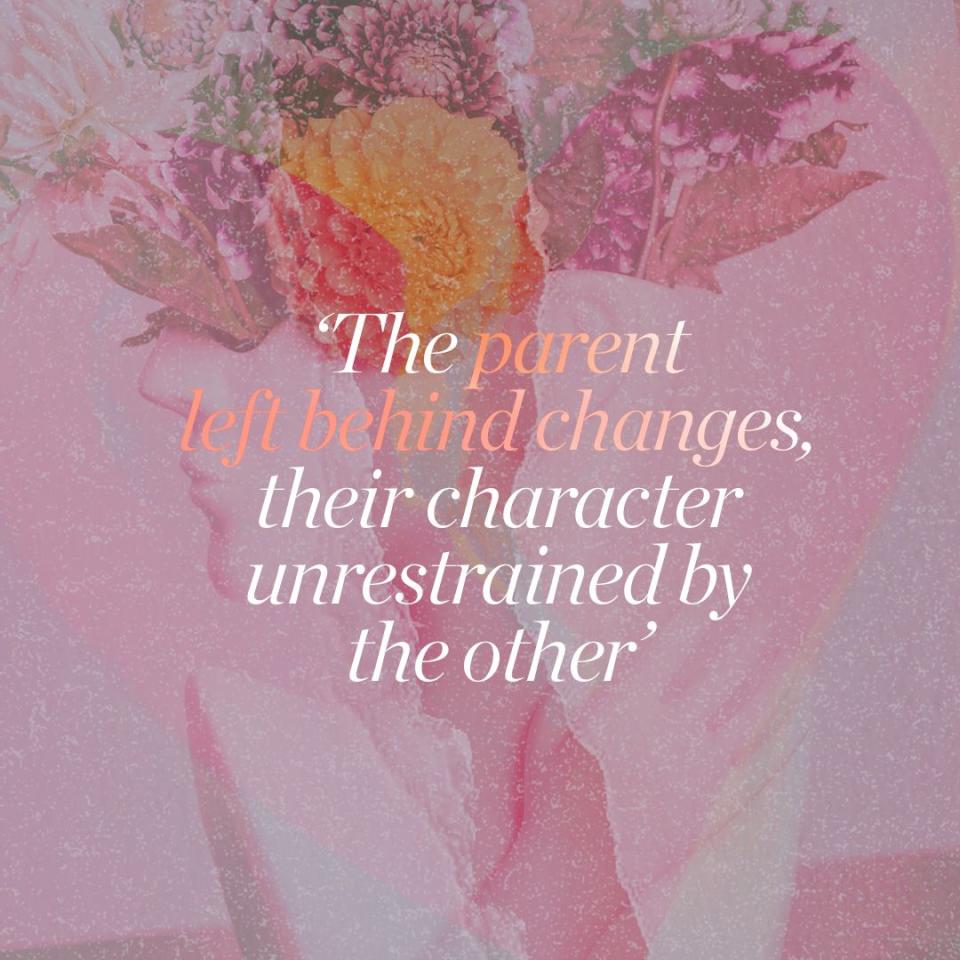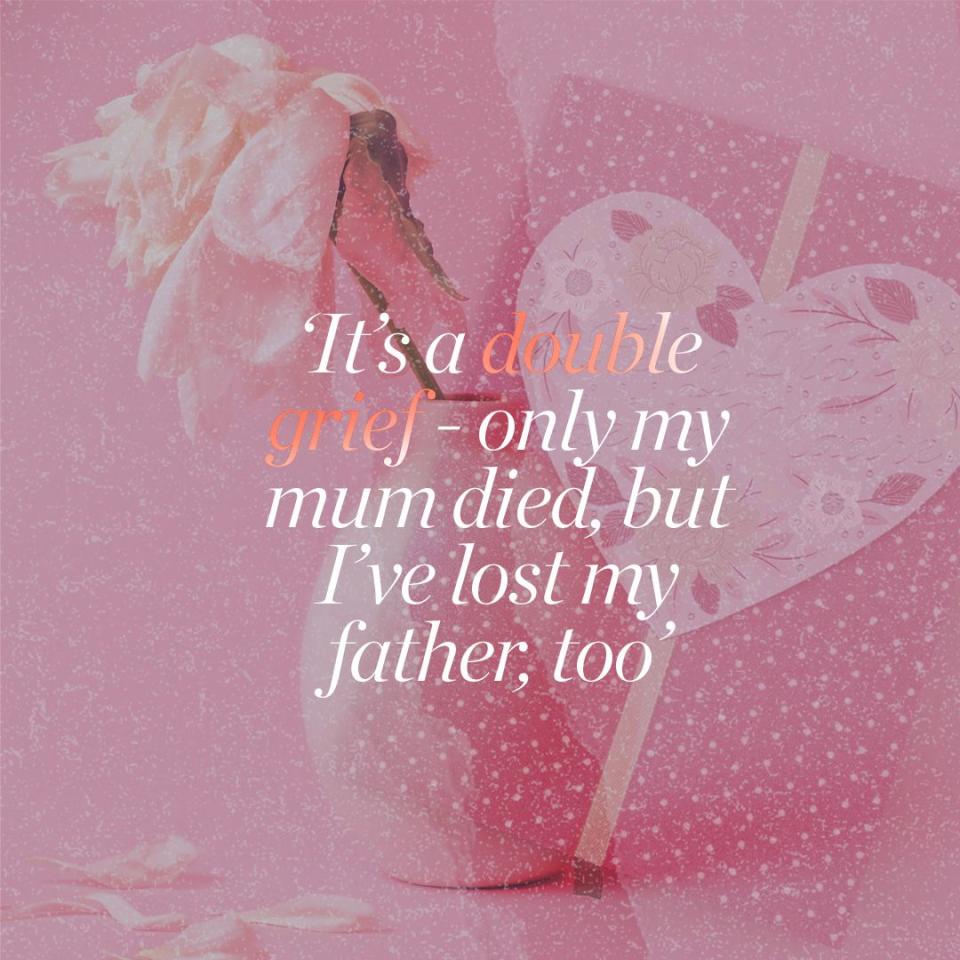Bereavement, boundaries and blame: how it feels when ‘the wrong’ parent dies

There was a time when I barely noticed Mother’s Day. 'It’s all made up to make money,’ my own mother would say, if I suggested doing anything to mark it. Since her death, five years ago, it’s become a day to dread.
The frenzy starts in February, when everyone from the café on my local high street to the brand I once bought leggings from begin to inundate me with emails. When the day arrives, social media becomes saturated with joyful ‘mummy’ posts and friends unfailingly have plans.
All these years on, it still hurts like hell; a part of me will never not be convinced that the whole thing's a conspiracy by the mothered masses to parade their happiness in my face. Only this year is wrapped in another layer of pain. I’m still without a mother, but now I’ve lost my father, too. He’s alive and well – and living down the road. It’s our relationship that’s fighting for its life.
Parent-child
It wasn’t always this way. My father and I always got along fine – in an old-school, Victorian way. I had a traditional middle-class upbringing. My father, working long hours, would come home exhausted and stressed; my mother would try and make things as pleasant as possible for him.
It was her I was close to; she was the one I confided in when I needed to unload and her’s was the shoulder I would cry on. It wasn’t just that she was around. We shared a sense of humour, a love of reading and a slightly alternative life-view. Under her well-dressed exterior beat the heart of a rebel. She was the mum who wouldn’t let me play with Barbie in case it made me feel bad about my body; the mum who sent me to ballet classes in a jumper to teach me that it’s okay to be different.
My father was there too, but he was mostly in the background – playing with me at weekends while leaving the emotional labour of parenting to my mother. When he eventually retired – a life stage that led to his worldview becoming increasingly myopic – her patience began to wear thin. 'If I die first, never let him come and live with you,' she once joked. Then she did – and it wasn’t funny.
Late expectations
In 2018, my mother was diagnosed with bowel cancer. Having stoically completed six months of chemotherapy, she deteriorated at alarming speed. At 2am on 8th June – 10 days after her life-prolonging treatment finished - I sat by her side in the hospital on a wooden chair and watched her take her last breath. Stunned and broken, I packed up her nighties, washbag and half-finished book – and kissed her goodbye for the last time.
In the weeks that followed, I channelled my grief into being the best daughter I could be. I taught my father how to use the washing machine and the cutlery that couldn’t go in the dishwasher – and our newly-defined relationship felt good. But this, I learned, was the honeymoon period. If I’d hoped to recreate my dynamic with Mum, he hoped to recreate his; before long, the anxieties she’d been selflessly absorbing found a new target: me.

We limped on like this for a while – me scared to say the wrong thing, him inelegantly trying to father me. But our communication styles and expectations were terminally mismatched. Then, last summer, I lost my job - and things took a turn for the worse. After weeks of watching my savings dwindle, then vanish, I summoned the courage to tell him. The comfort I’d come to expect from my mother was absent. Instead, he asked me why I didn’t have enough savings to last me a year ‘like a normal person’.
Compassionate leave
After that, he stopped calling and visiting. I told myself he found seeing me stressful – that I reminded him of a situation he wasn’t in direct control of – but deep down I was devastated. Aside from the fact I’d lost the emotional support I always assumed would be there, I had a nagging feeling he might be right; the assumption your parents really do know best is a difficult one to shake.
Our relationship’s improved since then, but I’ve found myself treading a difficult line – unable to be the daughter he wants me to be, unable to forgive myself, either. By the time the Mother’s Day emails started landing in my inbox once again, I was feeling sadder than ever. Curious to see if I was alone in this experience, I put out a message on social media. I could hardly believe the response.

From the colleague who watched her ‘compassionate’ father descend into a ‘selfish old man’, to the friend who’s watching her beloved dad fade while enduring her ‘narcissistic’ mother, the stories were crushing. One friend, who lost his mother at 16, spent years trying to build a relationship with his estranged father before building the boundaries he needed to. 'I think they change when the other parent is removed,’ he told me, of the grief that accompanies the loss of closest parent. ‘As a result, you get a new parent – one who’s unrestrained by the other – leaving you grieving for the loss of both of them.
Guilty secret
If the feeling that you’ve lost the ‘wrong’ parent feels shameful, it isn’t uncommon, says Julia Samuel, a leading psychotherapist and author of Griefworks: Stories of life, death and surviving. ‘Many people who’ve lost the parent they were closest to feel they’re left with “the difficult one”,’ she tells me, before echoing the sentiment of my friend. ‘It’s a double grief: you’re missing your mum – but you’re also missing how she helped with your dad. Your mum will likely have mediated the difficulties with your dad – so you haven’t built up a bank of goodwill with your dad for when he needs help and support'.
Enter: guilt. Because he’s my father, I feel I should do everything in my power to make him feel better, no matter what it costs me. When I can’t, I convince myself I’m a terrible daughter. This, too, is normal, Samuel tells me. She cites the five stage of grief – a model pioneered by the Swiss-American psychiatrist, Elizabeth Kubler-Ross. ‘[This model] teaches us that grief is the most painful companion of grief. It’s a social emotion – we have it so we don’t kill our neighbours and steal their food. But when it comes to our emotional relationships, guilt is often self-imposed – we turn and judge ourselves'.
The trick, she explains, is to separate feeling from thinking; just because I feel guilty about being a bad daughter, doesn’t mean I am one. To do this, I need to look at the relationship honestly and accept its limitations – rather than chasing the idealised father/daughter bond I wish we had. As Samuel puts it: 'Having the dad you’ve got doesn’t enable you to be the daughter you’d like to be.’ This resonates, hard. I’m not grieving a relationship lost with my father – it’s just the same as it’s always been. Instead, I’m grieving the relationship I had with my mother – the one I lost when I lost her.
Tools of engagement
Working with the relationship you have – rather than the one you want – begins with self-compassion, says Samuel; it’s also the most effective antidote to guilt. Being kind to yourself looks like creating boundaries around the relationship. She recommends speaking to a friend – or someone else who you trust – about how much capacity you have for the relationship, then creating a structure that works for your mental health now, while also accounting for how you might feel after they’ve gone.
Of course, boundaries can only do so much. 'Even if you have those boundaries in place, the parent can still be in your head,’ says Samuel, adding that the tools you use to manage your mental health more generally can be deployed to support you here, too. Something as simple as breathing exercises done before and after a phone call or visit, she shares, can help you access a feeling of calm that might otherwise be out of reach.

I finish our call feeling lighter; emboldened, even. Something about the sentiment of her advice awakens a memory in me – and it’s one I cling to. I’m having lunch with my mother. Against the advice of my friends, I’m deciding to leave my marriage, and it’s my mother’s opinion that matters. 'There’s no such thing as a right or wrong decision,' she told me, matter-of-factly. ‘It’s simply a matter of what you can put up with – and what you won’t'.
And therein lies the truth. There is no correct way to treat a bereaved parent; like coming to terms with loss, we have to work it out for ourselves. My father isn’t afraid to walk away when something troubles him; perhaps I could learn to do the same. Rather than look to him to replace the parental support I once enjoyed, perhaps I can accept him as he is – an imperfect human muddling along like the rest of us – and accept myself as the same. This Mother’s Day I’m cutting myself some slack. I’m planning to visit him – but for a quick coffee. Then I’ll make time to read a book; something my mum would approve of.
Missing your mum this Mother’s Day? Here, Julia Samuel shares her advice on how to care for yourself
Don’t spend the day alone
Arrange to meet a friend for a walk or coffee – it’s a difficult day for a lot of people and it’s important to not do it alone. Let yourself feel what you’re feeling – you might be sad, you might feel angry. It’s important to let yourself feel without judgment.
Create a ritual
Rather than try to ignore the day, consider creating a ritual to mark it and remember your mum. It could be taking a walk by yourself, writing her a card – or seeing other members of the family and sharing memories.
Remove social media
In the lead-up to Mother’s day, people often have a dread of all the pictures and happiness they’re going to see online. Cut yourself some slack – acknowledge it’s a difficult time and turn off social media on the day. You don’t need to make things harder for yourself.
Read even more Deep Dive features
The wellness space is becoming as divided as politics - are you team feelings or big data?
Do you worry about your drinking habits? Some smart, successful and health-conscious women are drinking in secret
Also - why are we so obsessed with body transformations? One writer explores her own and other women's
You Might Also Like


